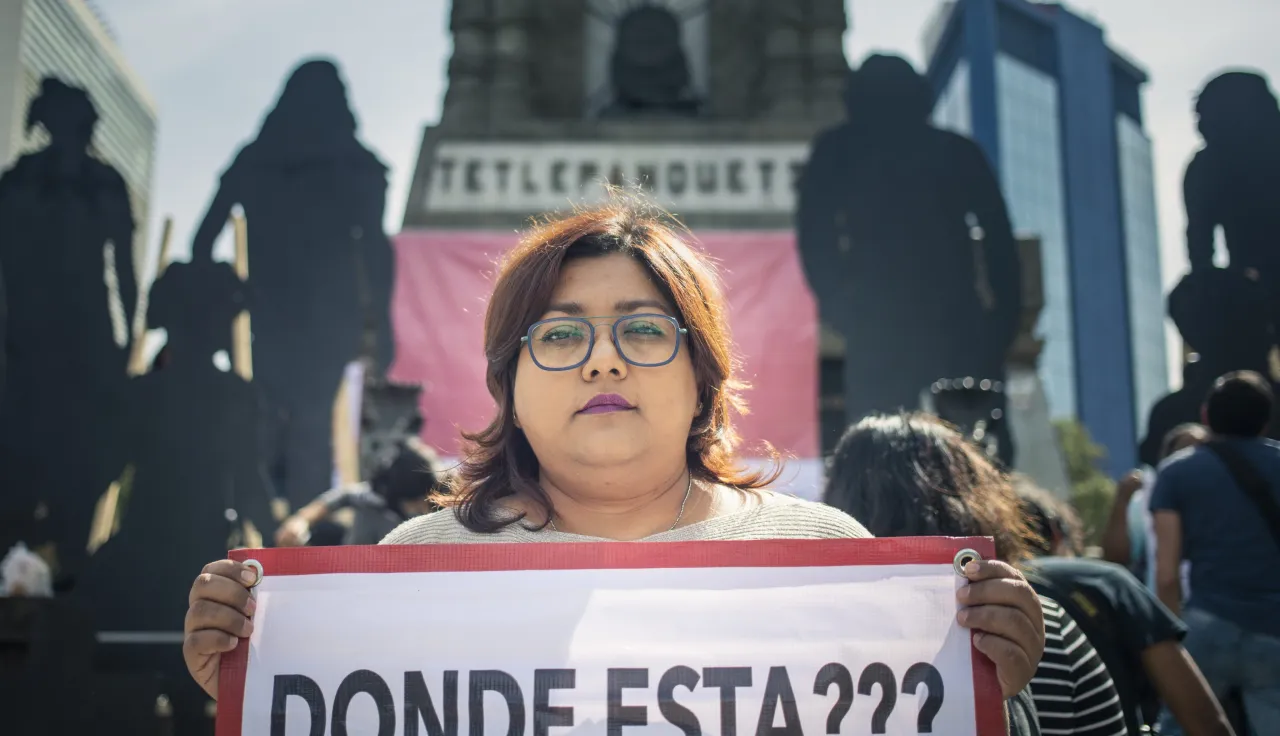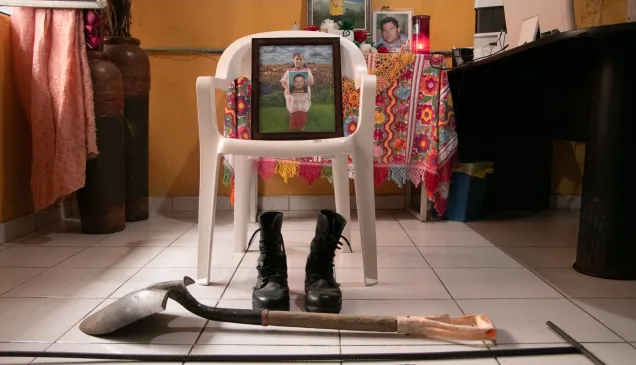A New Phase in the Search for Missing People

Jordi Raich, head of the regional delegation for Mexico and Central America
I arrived in Mexico at the beginning of 2018 to head up the regional delegation of the International Committee of the Red Cross (ICRC) for Mexico and Central America. One of the most significant recent developments was that the Missing Persons Act had just come into effect in Mexico and, with it, a national system for searching for the missing. The Act had been drafted with the families of the missing and they had been the driving force behind its enactment.
The reason for such a law was clear: the urgent need to establish a new vision for the search for more than 40,000 missing people and to address the dire situation of their families. Moreover, people continue to go missing today and every day.
Thousands of mothers and wives in Mexico wander from one agency to another looking for their sons and husbands. In addition, hundreds of mothers and wives from all over Central America come to Mexico searching for loved ones who disappeared while migrating through the country. One phone call, one photo, one remembered encounter can rekindle the hope that they are still alive months or even years after losing touch.
The ICRC addresses the humanitarian consequences of conflict and armed violence worldwide. One of the most distressing is the uncertainty of not knowing where a loved one is or what happened to them. It is an all too common story: a father, mother, husband, wife, son or daughter leaves the house one day and never comes home. Why? Did they have an accident? Were they kidnapped? Were they recruited against their will? Did they end up in the hands of an armed group? What happened? The suffering of living every day with this ambiguous loss is exacerbated by the psychological, psychosocial, financial, legal and administrative consequences of their loved one's disappearance.

Thousands of families in Mexico have joined collectives to accompany each other in the search for their missing loved ones. CC BY-NC-ND/CICR/B. Islas
Our ICRC teams come across the same story in all ten Mexican states where we work, as well as in our constant interaction with families at the federal level. We know many of the characters in these tragic tales. They refuse to give up. They are often members of associations that search tirelessly and with dignity for their missing loved ones, either on their own or though State bodies. They act out of desperation, but their purpose is clearsighted: get their relatives back, find out what happened to them, get their lives back.
We have spent years devoting our efforts and experience to helping these people, either directly or through the authorities responsible for handling their queries and meeting their needs. Working with them and on their behalf, we made recommendations as part of the drafting of the Missing Persons Act and we are providing advice and guidance on implementing the Act both at the federal level and in the individual states. We provide guidance on forensic projects, such as Project 751 in Guerrero state; we build the response capacity of forensic institutes and agencies providing mental health and psychosocial support services; and we support them through initiatives such as the national meeting of 65 associations.
Under international law, States are required to do everything in their power to prevent people going missing, search for those who are missing and mitigate the consequences of this issue. Our work and commitment in dozens of settings worldwide have taught us that "everything in their power" means, above all, matching the response to the scale of the problem and of the needs of the families affected, and ensuring the families are involved at every step of the process.
The Missing Persons Act highlights the complexity of the issues and largely fulfils these requirements. It was drafted with the involvement of the families and heralds a new phase in the search process. It establishes a series of institutions and tools, such as national and local search committees, specialized public prosecutor offices, protocols, programmes and a unified information technology and computer system. Once they have been approved and the necessary resources allocated, we are confident that they will offer more effective solutions for families.
When people go missing it is a problem not just for their families, but for each and every one of us. This is a serious issue that forces us to examine ourselves as humans and as a society.
At the ICRC we will continue working with and for these families and their associations. We will keep providing technical guidance in the various sectors involved in the search for missing people, as well as promoting and facilitating consensus among authorities, experts and associations in order to better meet their needs. Only coordinated, professional and empathetic teamwork by all concerned will deliver the response that we want for and owe to the families of the missing.



